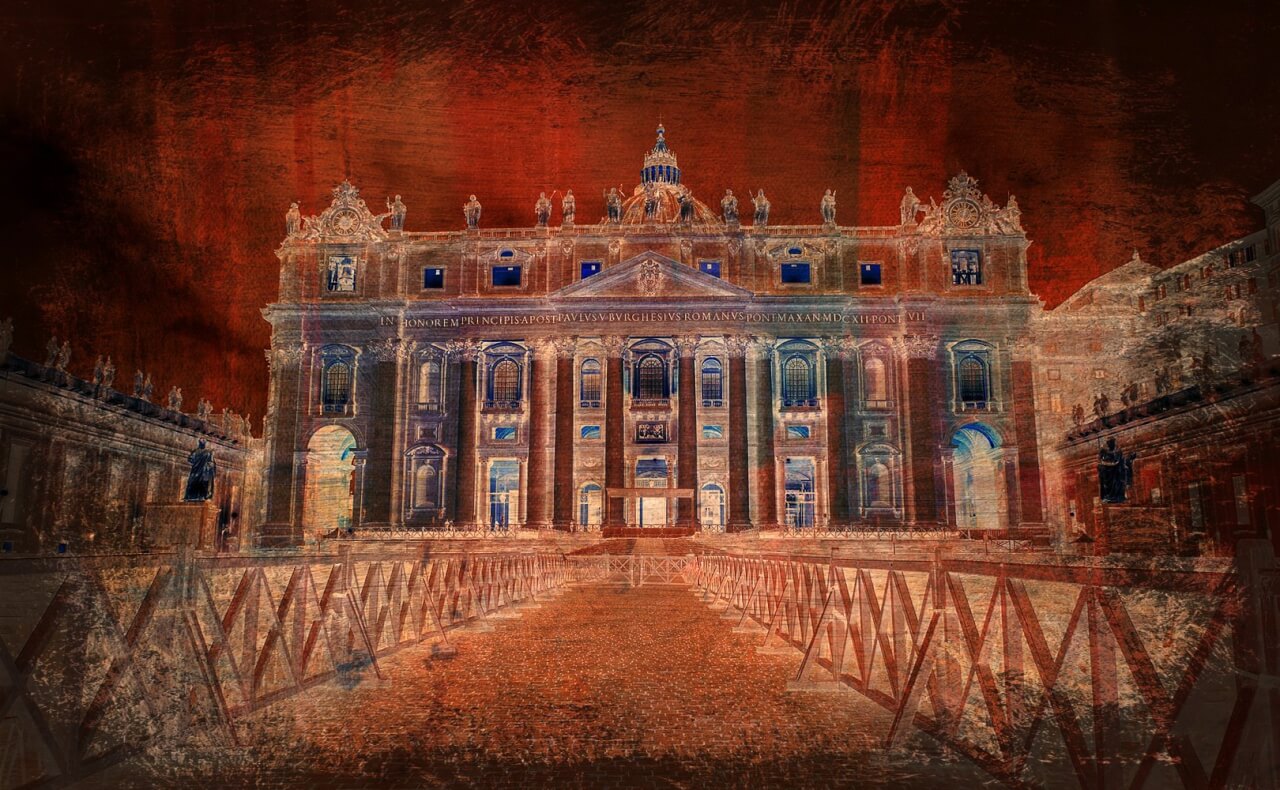Cardinal Reinhard Marx, Archbishop of Munich-Freising, Chairman of the German Bishops’ Conference and Commission of the Bishops’ Conferences of the European Community (ComECE), was well aware that with his “yes” to blessings of homosexual couples, he had crossed a red line.
In contrast to the proposal of Bishop Franz-Josef Bode at the beginning of the year, according to Marx’s view, there should be no general regulation. Rather, it should be checked in the parishes themselves, whether such blessings “in individual cases” may be possible.
But this limitation is a mere tactical window dressing. Cardinal Marx paves the way for any progressivist parish priest to make such blessings without having to justify himself theologically with a document and exposing himself to criticism. Whether different arrangements are made from parish to parish does not change the fact that Cardinal Marx considers (practiced) homosexuality to be harmless, at least under certain conditions.
With this step, Cardinal Marx basically intends to found a new Church. For the following reasons:
- Catholic sexual morality clearly states that the sexual act is morally licit only within a validly contracted marriage between a man and a woman. A Catholic is required to agree to this principle, even if he does not comply with it. With the de facto legalization of practiced homosexuality by Cardinal Marx, this principle is cancelled, in general and not only with regard to homosexuality. The binding Catholic sexual morality is being (largely) abolished by Cardinal Marx. Therefore, a Church that follows Cardinal Marx’s instructions would no longer be a Catholic but a new church.
- Whether blessings for homosexual couples take place or not should be made at the local level, i.e. in the parishes. But because the admission of these blessings implies a completely new moral theology, different parishes would have different moral theologies. The moral teaching is derived from the Faith. Marx’s acceptance of homosexual blessings leads to a condition where different “Catholic” parishes would follow a different faith and a different morality, which is not possible from the Catholic point of view. The unity of the Church would obviously be destroyed at parish level.
- If one goes to the level of the Universal Church, it becomes even more obvious that Marx’s proposal is anti-Catholic. Does he believe that other bishops or bishops’ conferences will follow his suggestion? Probably not. By adopting a new morality, a new faith, and new rites for the blessings, (at least part of) the Catholic Church in Germany would be separated from the ecclesial world community.
- Cardinal Marx still owes an explanation as how he wants to make his project attractive to the so-called “mother-tongue” Catholics. These are the Catholics with a migration background, i.e., Poles, Croats, Portuguese, etc. that live in Germany. They are not only more conservative than the average Catholic of German descent, but in many places, specially big cities, they already make up the majority of the faithful.
One can hardly imagine that Cardinal Marx did not think about the above mentioned points in moral-theological and ecclesiological terms.
Most likely, these objections do not bother him because he is already seeking to form a new kind of Church. This was made clear in an interview in early 2015 with the American journal of the Jesuits, America.
In that interview, Cardinal Marx shows understanding for homosexual partnerships, for “wild marriages”, for remarried divorcees, and for the demands to change the doctrine of the sacraments. Already at that time it was obvious that Cardinal Marx sought a comprehensive reform of the Church’s teaching on sexual morality.
In his interview with America, Cardinal Marx even goes much further.
He advocates also a declerization of power at the Roman Curia. Lay people should assume important ministries, even presidencies of councils, congregations (i.e., the Vatican ministries) and other administrative units. Women should be favored as part of these structural reforms. It must finally be recognized that one of the “signs of the times” is the “emancipation of women.” The Church must now accomplish this. (The term “emancipation of women” comes from the conceptual arsenal of left-wing social policy and is based on the ideology of the class struggle.)
These statements make it clear that the Church is not perceived by the liberal reform Catholics primarily as the guardian of the truth, but as a meeting place where all people, no matter what they believe in, gather. This can only work, if the Church adapts herself to the spirit of the times and has borders as open as possible. The boundaries between Catholic and non-Catholic are blurred as much as possible (but not so much that it could jeopardize Church Tax revenues). To achieve this a weakening of the priestly and episcopal ministry is necessary.
In such a Church, truth or fidelity to the Gospels can not be at the center of attention. That is not explicitly stated in the interview, but that is the inevitable consequence. For the truth to be armed against constant attacks, it must be hierarchically constructed on the basis of the Sacrament of Holy Orders.
Should this process of deformation of the Church continue long enough, an informal web of dioceses and parishes would emerge without any definite territorial boundaries, without defined teachings and without defined faith. Pseudo-democratic bodies and charismatic figures would dictate a way of life that wiould replace moral teachings and which is no longer bound to fixed religious truths. The Church would then not look much different from the utopian post-structuralist society of the sixty-eight revolutionaries.


